Have you heard of Quantum AI, the trading platform allegedly endorsed by tech billionaire Elon Musk?
Recently, advertisements and social media posts have popped up, claiming that Elon Musk has unveiled a revolutionary AI-powered trading app called Quantum AI that promises extraordinary returns with minimal effort.
These claims are enticing as you can earn thousands of dollars daily through algorithmic trading driven by quantum computing and artificial intelligence.
But is Quantum AI legit? Is Elon Musk really behind it? Or is it another sophisticated scam targeting hopeful investors?
In this article, I aim to uncover the truth behind Quantum AI. The article will analyze the red flags associated with Quantum AI and offer a legitimate alternative for investors interested in AI-powered financial tools.
So, let’s dive in.
Stay safe! Get stock picks verified by humans.
Zen Investor leverages AI as part of its stock-picking process … But every pick is also verified by a 40+ year veteran investor. Here’s what you get with your membership:
✅ Portfolio of up to 30 stocks hand-selected by Steve Reitmeister, former editor-in-chief of Zacks.com with a 4-step process using WallStreetZen tools, notably our proprietary Zen Ratings system, which includes a powerful AI component
✅ Monthly Commentary & Portfolio Updates
✅ Sell Alerts if the thesis changes
✅ Members Only Webinars
✅ 24/7 access to all the elements noted above
✅ Access to an archive of past trades and commentary.
What Is the Quantum AI Trading App?
According to its website, Quantum AI is a cutting-edge trading platform that combines quantum computing technology with artificial intelligence to predict market movements accurately.

The platform claims to analyze massive financial data sets in real-time by identifying profitable trading opportunities that human traders would miss.
Its unique selling proposition is the use of “quantum algorithms,” which leverage the principles of quantum mechanics to process information faster than traditional computers.
It claims to deliver daily profits ranging from hundreds to thousands of dollars. The platform handles processes automatically, with 20 minutes of “setup time” per day from users.
If this sounds too good to be true, you already know where this investigation is heading.
The Quantum AI Elon Musk Scam
The most prominent red flag surrounding Quantum AI is its purported association with Elon Musk, CEO of Tesla (NASDAQ: TSLA). Multiple advertisements feature where Musk enthusiastically promotes the platform, claiming it as his latest venture to democratize wealth creation. However, these endorsements are entirely fabricated.
The videos featuring Musk are sophisticated deepfakes created using artificial intelligence to superimpose faces or generate synthetic speech that mimics a person’s voice.
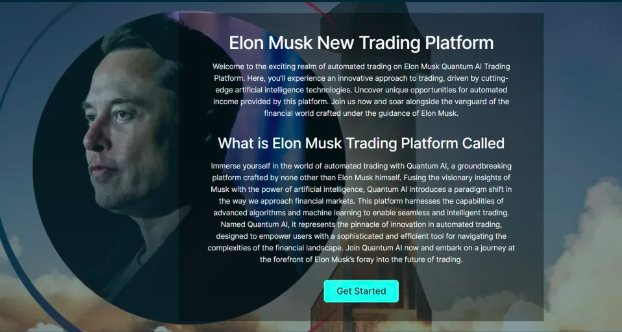
Quantum AI has used genuine footage of Musk from interviews or public appearances, doctored with an AI-generated voice that makes it appear he’s promoting the platform.
One widely circulated example shows footage from Musk’s appearance on the “Real Talk with Zuby” podcast, with an artificially generated voice dubbing over his actual words.
In the clip, Musk invites viewers to “earn up to $3,000 by selling shares with high returns and minimal risk” and claims the tool “will make you financially independent in the shortest possible time.”
The deception extends beyond Musk. Other notable figures whose deepfakes have been used to exploit users include Mark Cuban, Richard Branson, Jeff Bezos, and Bill Gates.
None of these high-profile individuals have endorsed Quantum AI or any other investing platform, as their fabricated images are used to lend false credibility to these schemes.
Quantum AI Elon Musk Review
Quantum AI scammers have created a network of fake news websites and media coverage to appear genuine. One deceptive tactic involves doctored news segments from established media outlets.
For example, a fabricated 9 News Australia report circulated widely, featuring a presenter with an American accent (a clear inconsistency for an Australian network) claiming that “Australians will no longer have to work” thanks to Quantum AI, which supposedly enables everyone to “receive an income of $5,700 a day.”
These fake news clips use actual footage from genuine broadcasts but overlay AI-generated voices and edit the content to create the illusion of media coverage.
The scam typically directs viewers to imitation news websites with URLs that closely mimic legitimate outlets but with subtle differences.
All links on these fake news sites lead back to Quantum AI promotional materials. It creates a closed ecosystem of deception and convinces potential victims of the platform’s legitimacy.
How the Quantum AI Scam Works
Keep yourself safe — here’s what to know about the Quantum AI scam.
1. Initial Contact Through Social Media
The scam begins with targeted advertisements on platforms like Facebook, Instagram, Twitter, and YouTube. The ads feature deepfake celebrity endorsements to capture attention and build trust.
2. The Landing Page Experience
Clicking on these ads takes users to professional-looking landing pages. The pages may include celebrity endorsements, fake testimonials, and countdown timers that create false urgency (“Only 7 spots left!”). You will also see profit counters that show users earning money in real-time.
3. The Registration Process
The free signup process requests basic information such as name, email, and phone number.
4. Quantum AI Investment
Shortly after registration, victims receive calls from “account managers” or “investment advisors” who use high-pressure sales tactics to encourage an initial deposit.
5. Remote Access Request
The “advisor” then requests remote access to the victim’s computer to “help set up the account” or “configure the trading algorithm.” They use remote access software like AnyDesk or TeamViewer.
Once granted access, they can access personal information, capture your banking credentials, make unauthorized transfers, and install malware.
6. The Manipulated Dashboard
Once a deposit is made, victims gain access to a trading dashboard that shows spectacular (but entirely fictional) returns.
7. The Withdrawal Problem
The final phase of the scam will limit attempts to withdraw profits or initial investments. Various obstacles appear here, including paying additional “verification fees” or “tax clearances.”
When the victims realize they’ve been defrauded, the initial investment is gone. In worst cases, scammers may have gained access to multiple financial accounts.
Most concerning is that scams disproportionately target vulnerable populations—retirees concerned about insufficient savings, individuals facing financial pressure, or those new to investing who may lack the experience to identify red flags.
Looking for legit AI stock-picking resources? Don’t miss our post about the best AI stock-picking tools.
A Legitimate Alternative: Zen Ratings’ AI Approach
Authentic alternatives exist for investors genuinely interested in leveraging artificial intelligence for investment decisions. One notable example is WallStreetZen’s Zen Ratings, which incorporates AI into a comprehensive, transparent stock analysis system.
What Are Zen Ratings?
Zen Ratings is a proprietary stock evaluation system that analyzes over 4,600 stocks using 115 unique factors to determine those with the most upside potential. The system assigns letter grades (A through F) to stocks, with A-rated stocks historically showing remarkable performance.
According to WallStreetZen’s data, A-rated stocks have produced an average annual return of +32.52% since 2003—significantly outperforming the broader market.
The AI Component: Legitimate Application
Unlike Quantum AI’s exaggerated claims, Zen Ratings transparently incorporates artificial intelligence as one component of a broader analytical framework.
The AI rating in Zen Ratings uses a neural network model trained on over 20 years of historical fundamental and technical data. It incorporates advanced cross-validation techniques to avoid overfitting.
The platform combines numerous variables, including earnings, cash flow, stock price movement, and industry trends, and provides a singular, actionable insight based on pattern recognition.
It is designed to adapt to future market conditions and not just past performance. Importantly, the AI component exists alongside six other component grades (Growth, Value, Momentum, Financials, Sentiment, and Safety), creating a balanced analytical approach with built-in checks and balances.
Why This Approach Is Legitimate
The Zen Ratings approach differs from scams like Quantum AI in several crucial ways:
- Realistic expectations: Rather than promising guaranteed daily profits, Zen Ratings acknowledges that even A-rated stocks won’t outperform every day, week, or month.
- Transparency: The rating methodology and the specific factors analyzed are clearly explained.
- Balance: The AI component is one of seven components, preventing over-reliance on any single analytical approach.
- Verifiable track record: The performance data is based on historical results, not fabricated testimonials.
- Accessibility without manipulation: Users can access the ratings directly through WallStreetZen’s platform without high-pressure sales tactics.
How to Use AI-Enhanced Stock Ratings Properly
For investors interested in AI-enhanced stock analysis like Zen Ratings, here’s how to approach it responsibly:
- Start with overall ratings: Focus first on stocks with A or B overall Zen Ratings, which consider all 115 factors.
- Use component grades for refinement: After identifying stocks with strong overall ratings, use the component grades (including AI) to find those that align with your investment strategy.
- Understand the limitations: Recognize that even the best rating systems can’t predict short-term market movements with certainty.
- Maintain diversification: Don’t concentrate investments based solely on ratings, regardless of how compelling they may be.
- Monitor changes over time: Regularly review your holdings as ratings change, considering selling when ratings drop significantly.
If you like a little more hand-holding when it comes to selecting stocks using the Zen Ratings system, you may want to consider our Zen Investor newsletter.
With your subscription, you gain access to a portfolio of up to 30 stocks, hand-selected by Steve Reitmeister, former editor-in-chief of Zacks.com. His 4-step selection process utilizes the AI tools inherent to our Zen Ratings system, but they’re human-verified through the lens of his 4 decades of investing experience.
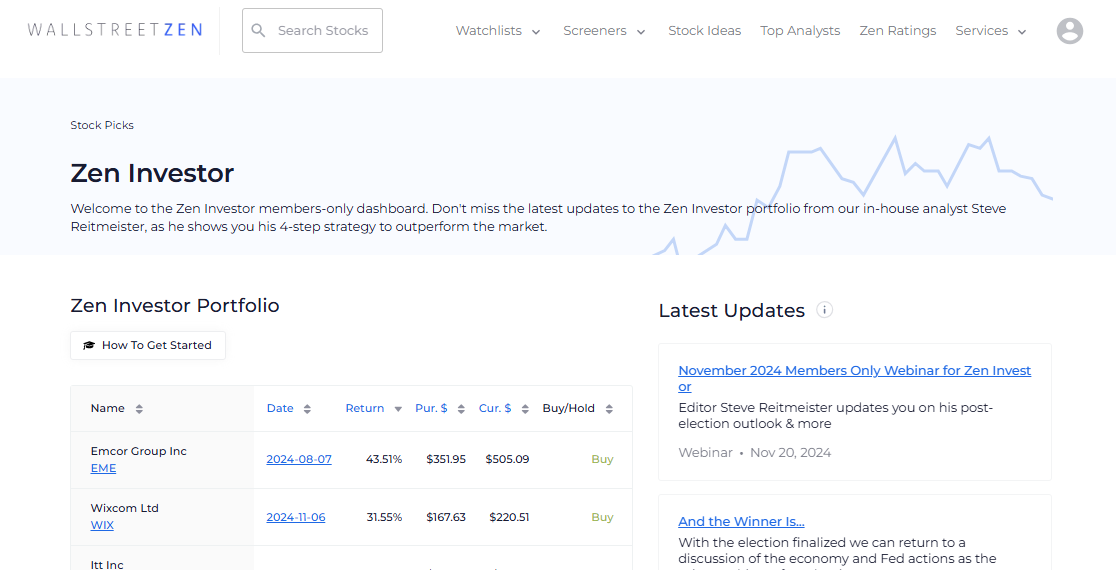
Not only do you gain access to Reitmeister’s expertise through monthly commentary, portfolio updates, and members-only webinars, but you also get sell alerts if the thesis changes on any given stock. Plus, you get full access to the portfolio’s archives, past trades, and commentary.
How to Protect Yourself from Investment Scams
Beyond avoiding specific schemes like Quantum AI, here are broader strategies to protect yourself from investment scams.
Do Your Due Diligence
Before investing in any platform, you must research the company using independent sources. You should verify regulatory registrations through official channels and check for reviews and complaints. Users should also understand precisely how the investment platform works.
Recognize Common Tactics
It’s imperative to be suspicious of platforms that guarantee consistent returns and use high-pressure sales tactics that create artificial urgency. Other red flags include complicated structures that can’t be simply explained and deepfake celebrity endorsements.
Digital Hygiene Practices
Users should protect their digital presence and never grant remote access to investment advisors. Users must use unique and strong passwords for financial accounts and enable two-factor authentication if possible. They should also be cautious about installing new software related to investments and check URLs carefully to avoid spoofed websites.
Report Suspicious Activity
If you encounter a scam, report it to your country’s regulatory agency. If you’ve made payments, alert your bank or credit card company immediately and share information (carefully) to warn others.
Conclusion: Navigating the Intersection of AI and Investing
The case of Quantum AI illustrates the critical importance of distinguishing between legitimate financial innovation and predatory scams that exploit technological buzzwords.
While fraudulent schemes like Quantum AI create flashy marketing around exaggerated technology claims, legitimate AI applications in finance, like Zen Ratings, focus on realistic applications, transparency, and balanced approaches that acknowledge artificial intelligence’s power and limitations.
The future of AI in investing is promising, but it’s evolutionary rather than revolutionary. By maintaining this perspective, you can benefit from technological advances while protecting yourself from those who would exploit the excitement around artificial intelligence for fraudulent purposes.
Want to see the power of legitimate AI-enhanced stock analysis? Check out WallStreetZen’s Zen Ratings to explore a transparent, data-driven approach to finding stocks with genuine outperformance potential.
FAQs:
How does Quantum AI Work?
Quantum AI doesn't work as advertised. It's a scam that falsely claims to use quantum computing and AI algorithms to predict market movements and generate extraordinary returns.
Does Elon Musk own Quantum AI?
No, Elon Musk has no connection to Quantum AI. Scammers create deepfake videos using AI technology to make it appear that Musk endorses the platform.
How to invest in Quantum AI?
You shouldn't invest in Quantum AI, as it's a scam. For AI-enhanced investing, explore transparent services like WallStreetZen's Zen Ratings that use verifiable methodologies and make realistic claims about potential returns.
What is the Quantum AI platform?
Quantum AI is a fraudulent investment scheme masquerading as a sophisticated trading platform. It falsely claims to use quantum computing and artificial intelligence to predict markets with extraordinary accuracy.
Where to Invest $1,000 Right Now?
Did you know that stocks rated as "Buy" by the Top Analysts in WallStreetZen's database beat the S&P500 by 98.4% last year?
Our April report reveals the 3 "Strong Buy" stocks that market-beating analysts predict will outperform over the next year.
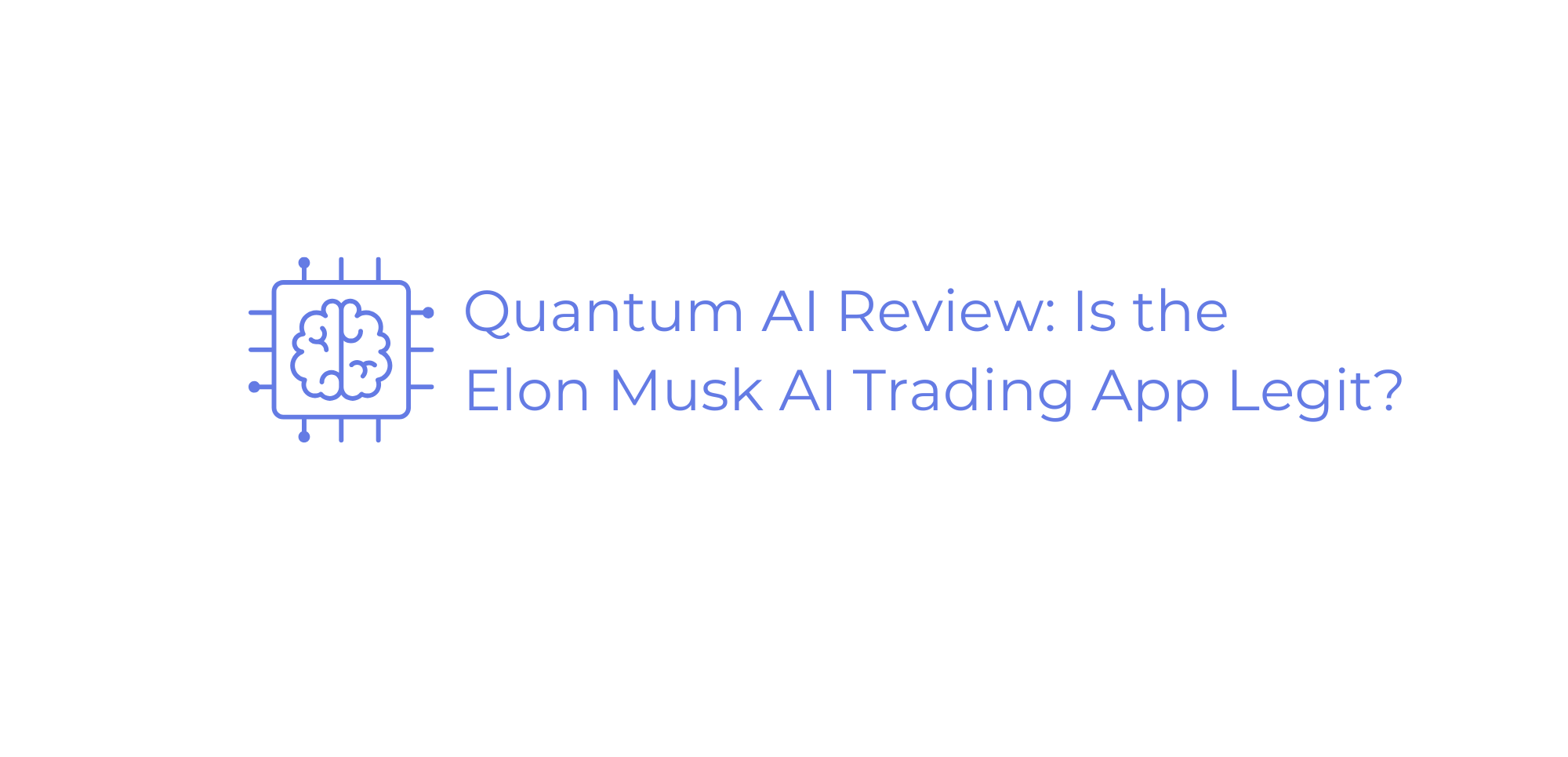
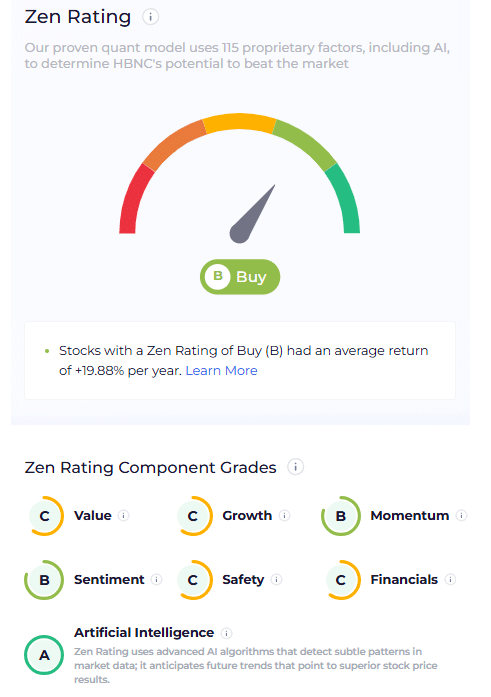
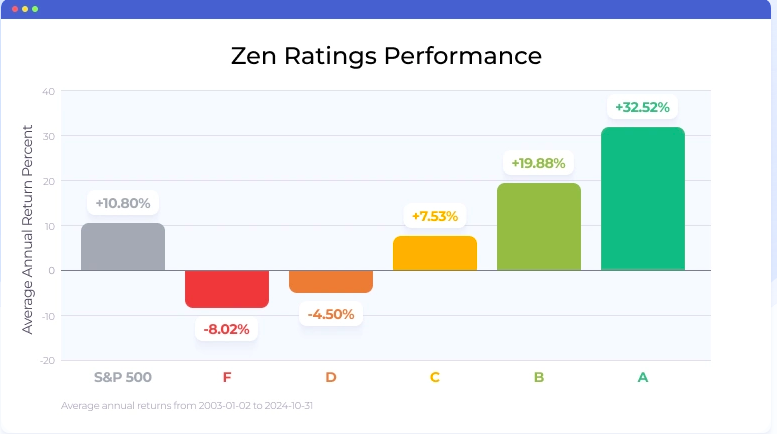
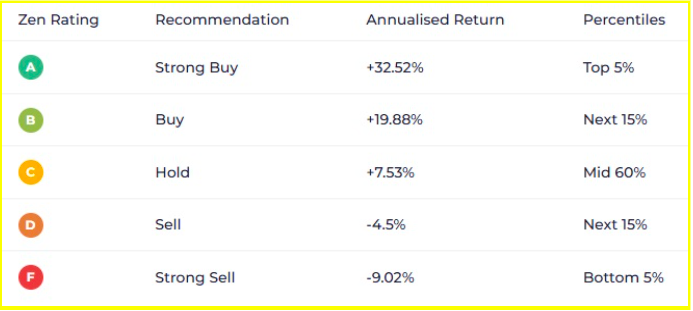

![How to Invest in AI Ultimate Guide [37 Artificial Intelligence Investments Stocks, ETFs, & Private Investments]](https://www.wallstreetzen.com/blog/wp-content/uploads/2024/07/How-to-Invest-in-AI-Ultimate-Guide-37-Artificial-Intelligence-Investments-Stocks-ETFs-Private-Investments.png)




